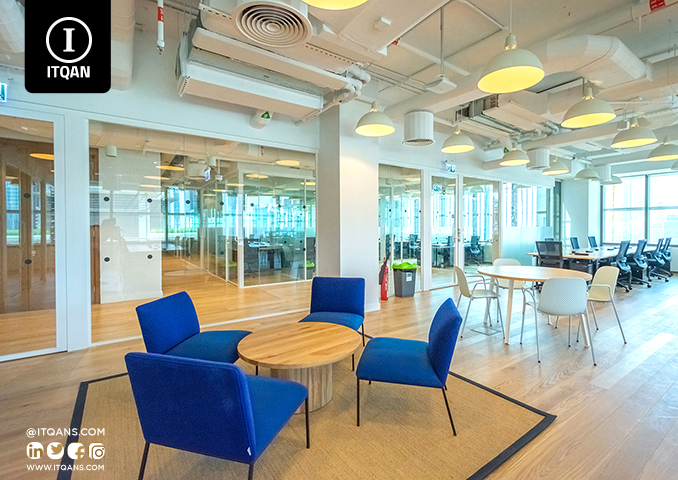How to establish a company in Ajman. Ajman is one of the emirates of the United Arab Emirates, characterized by a developed investment environment that encourages economic growth and innovation. Establishing a company in Ajman represents an important strategic step for investors seeking to benefit from the vast opportunities available in this vibrant emirate. In this introduction, we will explore how to start a company in Ajman in collaboration with Itqan Company.
Ajman offers a favorable investment environment that supports various businesses, whether small or large. The emirate has transparent and innovative investment legislation and policies that make it easier for investors to establish and operate their companies efficiently. In addition, the Ajman government provides a wide range of distinguished government services that include registering companies, issuing licenses, and providing the necessary logistical support to companies.
In cooperation with Itqan Company, investors can obtain the necessary support for all aspects of establishing and operating the company in Ajman. From legal and financial support to strategic planning and achieving compliance with local laws, Itqan provides the tools and resources necessary to ensure a successful start and prosperous future for your investment project in Ajman.
Ultimately, investing in Ajman reflects a fruitful investment opportunity in an emirate that combines modernity and tradition, making it an ideal destination for investors wishing to grow and prosper in a dynamic and evolving market.

How to establish a company in Ajman
جدول المحتوى
ToggleSteps to establish a company in Ajman Free Zone
Ajman Free Zone is one of the leading economic zones in the United Arab Emirates and provides an ideal investment environment for investors looking for distinct growth opportunities. This region has advanced legislation and policies that encourage business, making it a preferred destination for startups and medium-sized companies. In this context, we will review the basic steps for establishing a company in the Ajman Free Zone. Steps to establish a company in Ajman Free Zone
- Feasibility study and strategic planning: The company establishment process begins with a careful market feasibility study and competition analysis, which helps in developing an effective operational strategy.
- Choosing the company type: The appropriate legal form of the company, such as a limited liability company or a sole proprietorship, must be chosen based on the nature of the business activity and the needs of the investor.
- Choosing the location and space: You must select the appropriate location within the Ajman Free Zone and obtain the space required to establish the company’s headquarters.
- Company registration and licenses: This step includes submitting the required documents to the Department of Economic Development or the competent authority, and obtaining the necessary licenses to start the commercial activity.
- Establishing the organizational structure and appointing employees: The company’s organizational structure must be determined and qualified administrative and technical personnel must be appointed to implement the operational plans.
- Opening a bank account for the company: Investors must open a bank account designated for the company to facilitate financial and banking transactions.
- Compliance with local laws and legislation: You must comply with all local laws and legislation related to business in the Ajman Free Zone, including taxes, labor contracts, and environmental regulations.
Benefiting from government benefits and logistical support: Companies in Ajman Free Zone can benefit from available government facilities such as not imposing taxes on income for most sectors and logistical support for business operations.
Establishing a company in the Ajman Free Zone is considered an important strategic step for investors seeking to benefit from a fruitful investment environment and distinct growth opportunities in the heart of the United Arab Emirates.
Types of companies that can be established in the free zone
Establishing a company in the free zone is a popular option for investors seeking to establish their companies in the United Arab Emirates, as it provides a competitive and advanced investment environment. It allows investors to choose from several types of companies to suit their business needs and goals. In this introduction, we will review the types of companies that can be established in the free zone. Types of companies in the free zone
- Limited Liability Company (LLC): An LLC is a popular option where shareholders own shares in the company that reflect their financial responsibility. Its establishment requires a limited number of shareholders and it has rights and duties regulated by local laws.
- Sole Proprietorship: Also called a “sole corporation” or “personal corporation,” where the owner is one person who bears all the financial and legal responsibilities of the company.
- Joint Stock Company: A joint stock company is an organizational structure that includes a number of shareholders who own shares in the company. Shareholders’ liability is determined based on their shares in the company.
- Private Joint Stock Company: Also called a “private partnership company,” where the shareholders manage and operate the company and bear all its financial and legal responsibility.
- Foreign branch: The foreign branch is considered a representation of a parent company outside the country in the free zone, and is responsible for the activities of the parent company in accordance with local laws.
Each type of company comes with special benefits and entitlements, and the investor must choose the structure that best suits the business goals and financial obligations. It is recommended to consult with a local legal advisor or consulting company to obtain the necessary advice before taking any step towards establishing the company in the free zone to ensure full compliance with local laws and legislation.

Tax and customs benefits available in the free zone
Tax and customs benefits available in the free zone
The free zones in the UAE are an attractive hub for international business and investors, providing an excellent investment environment due to the many tax and customs advantages they offer. These areas are characterized by advanced investment policies and legal flexibility that make them an ideal destination for establishing a company in the free zone and expanding business. Tax and customs advantages in the free zone
- Not imposing taxes on income: This is one of the most prominent advantages that attract investors to free zones, as free zones do not impose any taxes on income for companies residing in them, whether they are local companies or branches of international companies.
- Customs reductions: Free zones allow companies to enjoy significant customs reductions or even complete exemptions on imports of imported foreign goods and products, which contributes to reducing operational costs and improving profit margins.
- No value-added tax (VAT): Free zones are an area exempt from the imposition of value-added tax (VAT) in the UAE, making it an attractive place to invest in commercial, manufacturing and logistics activities.
- Facilitated customs procedures: Free zones provide easy and fast customs procedures for export and import, including exemptions from routine customs procedures that facilitate the flow of goods and products quickly and efficiently.
- Flexible legislation and a favorable legal environment: Free zones enjoy a flexible and favorable legal environment, which supports advanced legislative policies that are characterized by transparency and regulatory flexibility to facilitate procedures for establishing and operating companies.
Our company’s role in establishing a company in Ajman
Ajman, one of the prosperous United Arab Emirates , has been experiencing rapid economic growth in recent years. Thanks to its business-friendly policies and advanced infrastructure, Ajman has become an attractive destination for investors from all over the world who want to establish their companies. The emirate offers multiple competitive advantages, including low operating costs, tax exemptions, and a stable investment environment.
In this context, Itqan has emerged as a major player in the field of company formation in Ajman. Itqan has extensive experience in helping to set up businesses in a smooth and efficient manner. By cooperating with Itqan, investors are able to benefit from their deep knowledge of local laws and legislation, and avoid any obstacles or delays in the establishment process. Itqan also provides assistance in choosing the appropriate legal structure for the company, obtaining the necessary licenses, and completing all administrative and financial requirements.
Ajman is an exciting emirate for investment in the United Arab Emirates, as it has a supportive and developed business environment that attracts investors from around the world. Establishing a company in Ajman requires adherence to clear procedures and precise legal guidelines to ensure successful investment and compliance with local laws. Itqan can be an essential strategic partner in this process, providing the expertise and guidance needed to balance innovation and compliance. The partnership with Itqan enhances the comprehensive support and advice system, facilitating the process of establishing the company and operating it with high efficiency. Thanks to this partnership, investors can benefit from the vast opportunities that Ajman offers, and achieve sustainable and profitable growth in a growing and evolving market.
Frequently asked questions about establishing a company in Ajman
What types of companies can be established in the free zone?
You should start by learning about the types of companies allowed in the free zone, such as limited liability companies, sole proprietorships, joint stock companies, and private joint stock companies.
What are the basic steps to establish a company in the free zone?
You should familiarize yourself with the basic steps to establish a company in the free zone, including submitting the necessary documents, registering in the local commercial registry, and obtaining the necessary licenses and permits.
What tax and customs benefits are available in the free zone?
You should ask about the tax and customs benefits available in the free zone, such as not imposing taxes on income, and facilitations in import and export.
What are the expected financial costs for establishing and operating a company in the free zone?
You should look at the expected financial costs of establishing and operating a company in the free zone, including registration fees, rental costs, and additional service costs.
What are the laws and regulations that must be adhered to?
You should ask about the laws and regulations that must be adhered to in the free zone, such as labor laws, environmental regulations, and any legislation specific to your business.
















